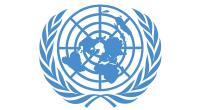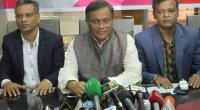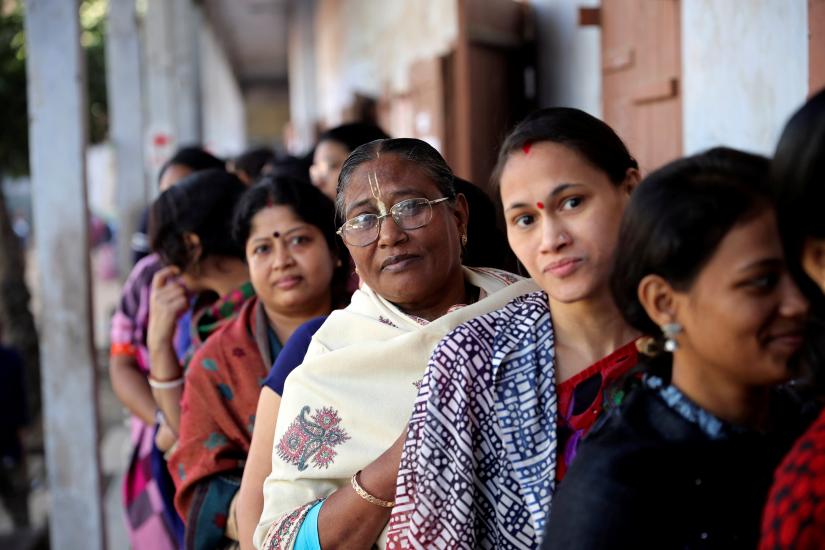 Now that sufficient time has elapsed since the one-sided Bangladesh general elections, India-based analysts have moved beyond expressing cautious first reactions to issuing a more detailed evaluation of the results.
Now that sufficient time has elapsed since the one-sided Bangladesh general elections, India-based analysts have moved beyond expressing cautious first reactions to issuing a more detailed evaluation of the results.
Some of the conclusions they have reached go well beyond the specific context of the elections and apply to the larger canvas of how democracy has evolved in Bangladesh in recent years. The Bangladeshi opposition narrative, dismissing the 2018 elections as a farce and its outcome unacceptable, stands rejected.
As Kolkata-based observer Charubrata Ray, not known for any sympathy for the ruling Awami League concedes, “The level of violence on election day and the aggressiveness of the ruling party were surprising. But there was not the slightest doubt that the (Awami) League was poised for a major win this time.”
There was understandable criticism in the Indian press of the manner in which the majoritarian, yet exclusivist approach of the Awami League, aiming to ensure the total marginalisation of the opposition coalition with the BNP as its largest member.
The large number of arrests of political opponents and their supporters—reports from Bangladesh suggested that no fewer than 300,000 cases had been registered against them—told its own tale. A section of the Indian media took note of this.
However, the contrarian view was also reported. Given the high populations of India and Bangladesh, the number of people involved in violent incidents always tends to be high.
Consequently, the numbers of people affected by such violence—whether they get arrested, killed or injured—are also high enough to shock most visiting poll observers and officials. Not least, because they come from Western countries with much smaller populations. 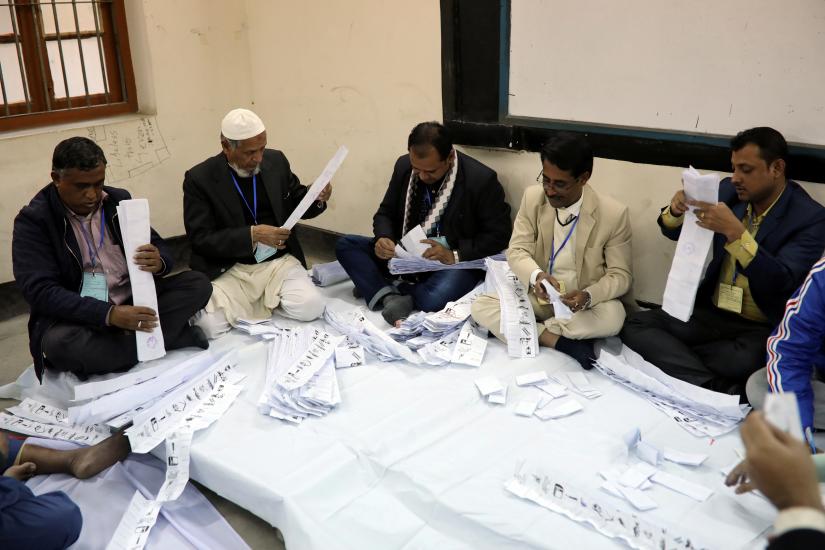 Characteristically, despite some criticism, there has been no outrage among Indian leaders or the media, over the death toll of 20 or so, during the Dec 30, 2018 elections.
Characteristically, despite some criticism, there has been no outrage among Indian leaders or the media, over the death toll of 20 or so, during the Dec 30, 2018 elections.
One observer has pointed to the fact that as democracy continues to take root in Bangladesh, it’s clear that it will not evolve according to norms associated with the Westminster mode, so familiar in the West.
“A two-party system has persisted now for more than two decades, but that has markedly increased the divisiveness in Bangladesh … The solution of handing power to a neutral, non party caretaker government was one option that was tried from 2006 to 2008 … But that was a one -off option when Bangladesh became virtually ungovernable”, writes Siddharth Singh in a well known journal.
In other words, what works in the West, where the two-party system has spawned political stability of a sort, may not necessarily be applicable in South Asia.
On the question of divisiveness, however, Kolkata-based observers do not agree with Singh.
They point to the present logjam in the post-Trump US political system, where the Republicans and Democrats have boxed themselves to a standstill, stalling even the process of governance. The same could be said about the present toxic relationship between the ruling Bharatiya Janata Party (BJP) and the Indian National Congress (INC) in India.
Divisiveness seems to be on the march everywhere, affecting even mature democracies. Bangladesh is not the only negative example.
Eventually, as the consistently high annual growth rate of 7-7.5%, the GDP in Bangladesh shows, common people now prioritise economic development and progress over any other consideration. 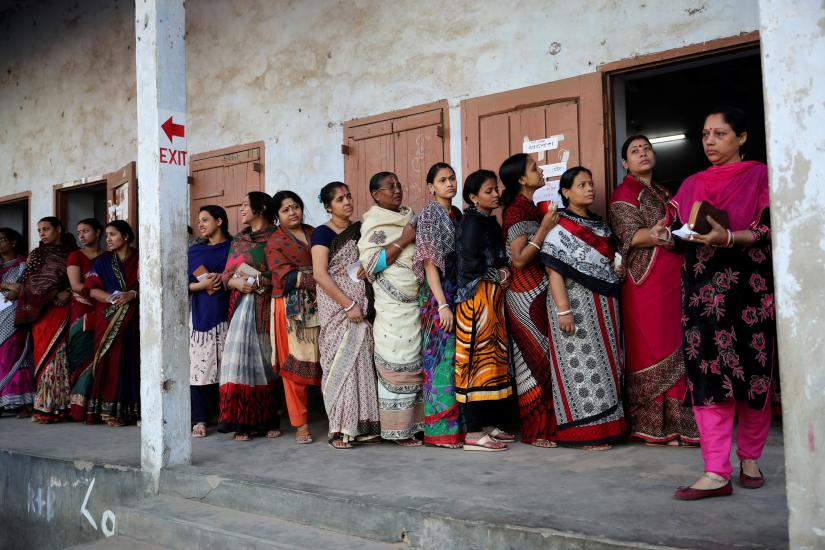 This naturally blunts the political appeal of fundamentalist political parties, organisations and groups. Awami League chief Shiekh Hasina’s slogan, ‘Dharma jar jar, utsab sabar’ acquires a new significance given such a mindset among the people.
This naturally blunts the political appeal of fundamentalist political parties, organisations and groups. Awami League chief Shiekh Hasina’s slogan, ‘Dharma jar jar, utsab sabar’ acquires a new significance given such a mindset among the people.
Singh further warns that the NGOs and various civil society groups (whether home grown or foreign-bred) that often sit in judgment over competing political parties in Bangladesh, should not overrate the roles they play.
“Bangladesh teaches us the dangers of letting NGOs and civil society dictate what it politically acceptable and what is not … For a very long time due to its aid-dependent economy, Bangladesh was virtually in the grip of aid agencies and NGOs. In a democracy that is not acceptable.
If one wants to participate in the political system, one has to form a party and join politics. One cannot avoid the rough and tumble of such politics and yet continue to have political authority. On paper, at least, it is subversive of larger democratic goals.”
This may be sweet music for Awami League leaders and their supporters, but there’s no doubt that Singh’s stand is hard to argue against.
 National
National
41240 hour(s) 50 minute(s) ago ;
Morning 03:45 ; Tuesday ; Jul 01, 2025
Indian media analysts decry NGO criticism of Bangladesh polls
Send
Ashis Biswas, Kolkata
Published : 00:25, Jan 14, 2019 | Updated : 00:28, Jan 14, 2019
Published : 00:25, Jan 14, 2019 | Updated : 00:28, Jan 14, 2019
0 ...0 ...
/hb/
Topics: Top Stories
- KOICA donates medical supplies to BSMMU
- 5 more flights to take back British nationals to London
- Covid19: Rajarbagh, Mohammadpur worst affected
- Momen joins UN solidarity song over COVID-19 combat
- Covid-19: OIC to hold special meeting
- WFP begins food distribution in Cox’s Bazar
- WFP begins food distribution in Cox’s Bazar
- 290 return home to Australia
- Third charter flight for US citizens to return home
- Dhaka proposes to postpone D8 Summit
Unauthorized use of news, image, information, etc published by Bangla Tribune is punishable by copyright law. Appropriate legal steps will be taken by the management against any person or body that infringes those laws.
Bangla Tribune is one of the most revered online newspapers in Bangladesh, due to its reputation of neutral coverage and incisive analysis.
F R Tower, 8/C Panthapath, Shukrabad, Dhaka-1207 | Phone: 58151324; 58151326, Fax: 58151329 | Mob: 01730794527, 01730794528

